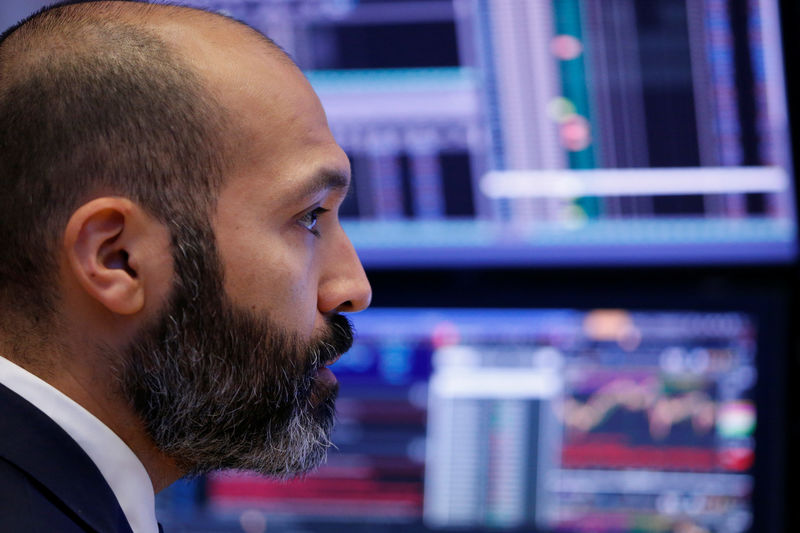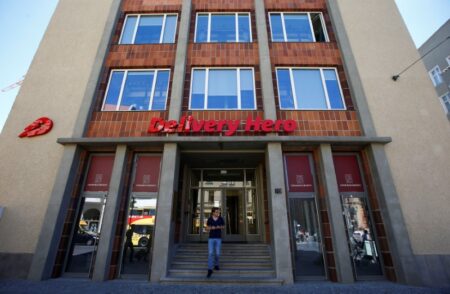In a recent webcast conference call, Idorsia Ltd (IDIA.S) discussed its full year 2023 and first quarter 2024 financial results, along with updates on its product pipeline and commercial strategies. CEO Jean-Paul Clozel and CFO André Muller provided insights into the company’s achievements, including the market introduction of three drugs and the establishment of a global marketing organization.
The launch of the antihypertensive tablet TRYVIO in the US and the positive opinion from the European Medicines Agency for aprocitentan were among the key highlights. Despite a reduction in the sales force, prescription volumes for the insomnia treatment QUVIVIQ have grown in the US. Financial guidance for 2024 forecasts a non-GAAP operating loss of CHF 420 million, with cash and cash equivalents anticipated to be CHF 308 million by the year’s end.
Key Takeaways
- Idorsia introduced three new drugs to the market and established a global marketing organization.
- QUVIVIQ prescriptions reached approximately 60,000 per quarter in the US.
- The company reduced its sales force to 100 representatives.
- Cash and cash equivalents stood at CHF 335 million as of the end of March 2024.
- TRYVIO received FDA approval in the US, with a commercial launch planned for Q1 2025.
- Aprocitentan received a positive opinion in Europe and is approved in the US.
- Financial guidance for 2024 includes a projected non-GAAP operating loss of CHF 420 million.
- Idorsia highlighted its pipeline, including ongoing studies for lucerastat and daridorexant in pediatrics and a proof-of-concept study for CXCR7.
- The next scheduled event for the company is the release of the first half year ’24 results on July 25th.
Company Outlook
- Idorsia aims to increase sales of QUVIVIQ and prepare for the US launch of TRYVIO.
- The company is focused on innovation and building a strong pipeline, including products like lucerastat, daridorexant, and CXCR7.
- The commercial approach for QUVIVIQ and pricing strategy for TRYVIO were discussed, with TRYVIO’s monthly list price set at $775.
- Ongoing discussions for potential collaborations, particularly regarding aprocitentan, are taking place.
Bearish Highlights
- The company’s sales force has decreased, potentially impacting the market penetration of its products.
- Financial figures indicate a projected non-GAAP operating loss of CHF 420 million for 2024.
Bullish Highlights
- TRYVIO’s approval and upcoming launch in the US, along with a positive opinion for aprocitentan in Europe, signal potential growth.
- QUVIVIQ’s inclusion in new European insomnia guidelines and its growing prescription volumes in the US despite a smaller sales team.
Misses
- Idorsia’s financials show a significant operating loss projection for 2024.
- Sales numbers for QUVIVIQ were affected by price negotiations in Germany.
Q&A highlights
- The company justified TRYVIO’s pricing based on its unique mode of action, impressive efficacy in blood pressure management, and the significant unmet need it addresses.
- TRYVIO is considered safe and convenient for patients and physicians, with no documented risk of hyperkalemia or drug-drug interactions.
- The company believes the price of TRYVIO is fair and ensures necessary access to the drug.
Idorsia’s recent earnings call provided a comprehensive view of their financial status and strategic direction for their product portfolio. The company’s focus on increasing sales, preparing for new drug launches, and maintaining a strong pipeline reflects its commitment to growth and innovation in the pharmaceutical industry. With significant developments in the pipeline and a clear commercial strategy, Idorsia looks to navigate the challenges ahead while capitalizing on the opportunities presented by its novel treatments.
Full transcript – None (IDRSF) Q1 2024:
Operator: Good day, and thank you for standing by. Welcome to the Idorsia Full Year 2023 and First Quarter 2024 Financial Results Webcast and Conference Call. [Operator Instructions] Please be advised that today’s conference is being recorded. I would now like to hand the conference over to your first speaker today, Andrew Weiss, Head of Investor Relations. Please go ahead.
Andrew Weiss: Thank you, Nadia]. Good afternoon, and good morning to you all. This is Andrew Weiss, and I want to welcome everyone to our webcast conference call to finally discuss the full year 2023 and first quarter ’24 results with you. As you may have noticed today, we’ve also filled your e-mail box with other important releases regarding governance structure at Idorsia. I will shortly hand over to our CEO, Jean-Paul Clozel; and our CFO, André Muller; to give you additional color on everything we’ve announced today. Then joining us for the Q&A session, we have our General Manager and President of the U.S. organization, Tausif Butt, and our soon to be President of Idorsia, EUCAN region, Benjamin Limal, who will be taking over from Jean-Yves Chatelan. Next slide, please. Before handing over the microphone, I need to remind everyone that we will be making forward-looking statements today. You have therefore been appropriately warned about the risks and opportunities of investing in Idorsia shares. With that, Jean-Paul, the floor is yours. Next slide.
Jean-Paul Clozel: Thank you, Andrew. And after 24 years, this is going to be my last webcast as a CEO and I think it’s a good time to really think of what we have achieved since the creation 7 years ago of Idorsia. We did quite a lot since we brought 3 drugs to the market, PIVLAZ, QUVIVIQ and TRYVIO and also we — during this time, we built a global marketing organization in the U.S., in the main country in Europe and also in Japan. And of course, we launched QUVIVIQ in the U.S. and in the main European countries. We created, in addition to these 3 products which went on the market, a late-stage pipeline and we continue to discover a new drug and build a very strong pipeline. We also reacquired the rights of aprocitentan from Johnson & Johnson (NYSE:) and of course, all that required something and we have been able up to now to pay for all this achievement. Next slide. So we are not stopping to work and there is still a lot to do, and I would like to focus on what we need to achieve until the end of this year. First, we have to continue to increase the sales of QUVIVIQ. And you will see that in Europe, the launch in the different countries is going on very well and we will see strong growth for QUVIVIQ. We need to prepare for the launch of TRYVIO in the U.S., and we need also to continue to innovate because new products is going to be key for also — for the future of Idorsia. And clearly, and André will speak about that. We need to extend the cash runway since we have been able to find a solution for delaying by 6 months the convertible reimbursement. Next slide. So I think that Idorsia with all this achievement with this clear objective is entering into a new phase. And the goal — the final goal has never changed. We want to reach financial sustainability as soon as possible. And this is why it’s so important for us to increase our revenues from partnership and also clearly from our marketed products sales. Next slide. Next slide. For this next phase, we are strengthening and increasing the Executive Committee, Julien Gander of the General Counsel, is going to join as well as Arno Groenewoud, who will replace André as the Chief Financial Officer. Martine and Alberto are staying as respectively Chief Scientific Officer and Head of Clinical Development. So we have also, as mentioned in our press release, I will be a candidate to be elected as Chairman of the Board at the next AGM with Mathieu continuing to be serving the Board of Idorsia as the Vice Chairman, and he will be candidate to become by Vice Chairman and Lead Independent Director and we have [indiscernible] who is going to be a candidate for joining the Board with also where Sophie Kornowski, Srishti Gupta will remain and Sandesh Mahatme as the head of the FAC committee — finance and audit committee. So with these changes, I think we are going to be very well equipped for a bright future. And André is going to describe a little bit not only the year ’23, but also what we intend to do in ’24.
André Muller: Thank you, Jean-Paul. Let’s go to see your next slide, Slide 7. As you can see, and Jean-Paul alluded to it, the last few quarters have been quite busy across the organization for Idorsia. I take it in a sequential order, mid-July 2023. We closed the CHF 400 million deal with Sosei Heptares, now a new brand name is Nxera Pharma. In September, we reacquired the worldwide rights of aprocitentan from Janssen for conditional consideration up to CHF 306 million. In Q3 2023, we also launched cost saving initiatives, mainly we see R&D and support function, but also with a new priority for the commercial organization. And of course, the early-stage pipeline was also [indiscernible]. Moving to 2024. We closed the transaction with Viatris of USD 350 million regarding 2 of our Phase III assets, selatogrel and cenerimod. And lastly in May, so early May 2024, we also restructured the 2024 bonds. It remains subject to the final approval of the Swiss Cantonal authorities. But now, as Jean-Paul said, the CHF 200 million bond will mature at the latest mid-January 2025. So we are set, as you can see, a lot of work achieved in the last few quarters. And a lot of work behind the scenes, I would say, on business development front is an objective — a clear objective to extended cash runway and also, of course, maximize the value of the asset liable to be a potentially a partner. Next slide, please. On this Slide #8, you can see full year ’23 numbers. not entirely new to you as we published in April ’24, the financial status in connection with CB, convertible bond restructuring which also included the Q4. So it was easy for you. [indiscernible] we see 9 months plus the last 3 months to figure out what was the performance for the full year 2023, which is the new format actually will allow to understand the performance between the Idorsia business, which is operated by us and the partnered business. So with assets, partnered and/or operated by third parties, for which we will, of course, keep upside with potential milestones and royalties. And if you look at 2023, on the left side, you have the reported numbers. On the right side, you have what we call the proforma numbers which excludes the impact of the sale of the Asian business ex China to Nxera Pharma for as you can see here, sets an impact, forces a specific deal into P&L of CHF 368 million, so the rest of the contract revenue CHF 19 million would actually equal here CHF 387 million that you can see on the partnered business. Regarding the Idorsia business for 2023, you see little difference between reported and proforma because the contribution of our operation in Japan and South Korea for 6.5 months that we operated the business before the Nxera deal was minimal. You see that we ended with a non-GAAP EBIT loss of CHF 592 million, so roughly CHF 329 million for commercial and CHF 262 million for R&D. Next slide, please. So Slide #9, I will not spend too much time on the quarterly development of the Idorsia business. So also excluding as we discussed the Nxera deal and the 6.5 months operation in Japan and South Korea. But what is — what you can see over time, we use a loss — following a new commercial strategy, we’ll discuss it in the next few slides and the initial benefits of the restructuring and portfolio prioritization. R&D, as you can see, of CHF 262 million in ’23, of course, included the study cost for selatogrel and cenerimod. Without this, we would have been slightly below CHF 200 million. Next slide, please. And liquidity or cash development. Cash went down to CHF 145 million by year-end despite the much needed cash from the deal with Nxera Pharma of CHF 400 million. Next slide, please. Now switching to Q1 2024. Again, numbers already disclosed with the financial status published in April in connection, we see a restructuring of the convertible bonds. Let’s start with the partnered business. You see the impact of the Viatris deal. As you know, we received an upfront of USD 350 million, only USD 150 million ending with some small adjustment to CHF 125 million were accounted and recognized in the P&L. The reason for it is that the remaining $200 million represent the commitment of Idorsia to fund the Phase III cost for selatogrel and cenerimod. Above $200 million, it will be Viatris who will fully cover these development costs. And it means also that this USD 200 million will be recognized over time, not as a contract revenue, but as a deduction of the R&D costs. And this started already in Q1 2024 with CHF 14 million recognized in the P&L after deduction of the R&D costs. Now looking at the Idorsia business. You can see here a very clear impact of the cost saving initiatives in Q3 ’23, with much lower SG&A despite an increase in EUCAN, we will cover it in a few — in next few slides and much lower R&D OpEx. The CHF 29 million OpEx in R&D compares to actually not to CHF 80 million, but to CHF 65 million when you exclude the selatogrel and cenerimod costs incurred in Q1 2023. Next slide, please. Down to Slide 12. Again, you see the same cash development for the first quarter of 2024. You see that we see our cash and cash equivalent by the end of March is CHF 335 million. Of course, helped with $350 million, i.e., CHF 308 million by fiscal year. Next slide, please. Slide 13. Here, you see — you see the announcement regarding aprocitentan is U.S. and in Europe. Speaking of the U.S., 12.5 milligram was improved on the 19th of March by the FDA under the brand name TRYVIO. And as already mentioned in the previous webcast, regarding this approval, TRYVIO is the first oral antihypertensive tablet, which works via new therapeutic pathway and to be approved almost in the last 40 years. An indication in the U.S. is for the treatment of hypertension in combination with other hypertensive medications to lower blood pressure in patients who are not adequately controlled on other drugs. So it’s for us and I hope for the community a significant medical breakthrough in the field of hypertension and blood pressure control. In the month of April 2024, the EMA, European Medicines Agency and Committee for Medicinal Products for Human Use, CHMP, has issued a positive opinion on aprocitentan under the brand name JERAYGO and recommending a marketing authorization for the treatment of resistant hypertension in adults in combination with at least 3 antihypertensive medicines. Here, it should be 12.5 and 25-milligram that should to be approved. Moving to the next slide to Slide 14. You see how we now prepare the launch of TRYVIO in the U.S. And as you know and as we have mentioned, a little time since we reacquired the rights from Janssen back in September 2023. In short, we can say that we want to make TRYVIO commercially available in the fourth quarter of 2024 and have commercial launch in the first quarter of 2025. We announced by the end of April, our monthly WAC, wholesaler acquisition cost, of $775. We — the launch readiness is underway, and this includes building our REMS program, establishing the distribution network, initiating the process of holding post-approval clinical reviews with the payers and this will continue throughout the remainder of the year and, of course, moving forward in 2025. We’ve also made progress in the hiring and training of our medical science liaison because [indiscernible] need to understand the unique benefits of aprocitentan and U.S. team could interact with many cardiologists at the American Congress of Cardiology in April. U.S. team will continue the efforts with 3 upcoming important congress, AHA-HTN in Boston in September, ASN Kidney Week in San Diego in October and AHA in Chicago in November. And again, the full commercial launch is targeted with initial sales force deployments for early 2025. Next slide, please. Speaking of the U.S. performance. On the left hand side, you see the quarterly evolution of the prescription of QUVIVIQ since launch. On the right side of this slide, you see the sales force number, which has a decrease since the launch as you can see. And see these parts, we have mentioned it. We refocused strategy in the U.S. And while we are working, we’ll discuss it on the citizen petition to get the drug schedule. And currently, we were able to deliver robust volume growth in prescription in the first 4 quarters after launch. And this was despite the sales rep numbers decreasing as we saw to better manage our OpEx in the U.S. affiliate. And if you take the total prescription volume, around 60,000 prescriptions per quarter for the last 12 quarters. And again, despite the reduction in sales reps numbers. Now speaking of sales force, we rightsized the sales force to 100 reps. And we feel this is now the right number at this time based on the access we have and the — our schedule [indiscernible]. Speaking of access, no change in Part D coverage, which fits more or less at 26% with UHC Optum and our commercial coverage is now around 65% with ESI, CVS and some of the blue plants that in addition, I would say, we are encouraged to see that the 50-milligram dose represents more or less a full year quarter of the volumes and sustaining this ratio is very important because we see a greater efficacy and improve adherence with 50 milligrams compared to the 25 milligrams. Next slide, please. So on Slide 16, and you see a proportion of payer mix, payer paid prescription which is now 73% by the end of March of 2024. So improving over the quarter-over-quarter. And at the same time, we continue to reduce our reliance on the consignment [indiscernible] goods, which you can see in the blue and red color bar. Next slide, please. So here, you see the sales development in the U.S. in Swiss francs. So with CHF 6.5 million in Q1. So if you take the main numbers beyond the sales since the launch, more than 140,000 patients have been treated with QUVIVIQ, more than or close to 400,000 prescription have been dispensed. And the product has been prescribed by more than 42,000 ACPs. Next slide, please. I already mentioned it, sets for us a key milestone to unlock value for QUVIVIQ in the U.S. We filed in April ’23, a citizen petition urging the FDA to deschedule the dual orexin receptor antagonist class of chronic insomnia medication. And this, of course, is based on a review of evidence from available data, including post marketing surveillance data. Starting in 2015, the independent FDA approval of other DORAs included the recommendations that these drugs be scheduled based on preclinical data. The citizen petition to deschedule the DORA class outlined current scientific and medical evidence demonstrating that the DORA class has a negligible abuse profile and potential for abuse, lacks nonmedical use in the community, lacks physical and psychological dependence and there should not be a scheduled class under the Control Substance Act. EA and FDA acknowledged that this CP which is the first step, a process to analyze and [indiscernible] moving forward. Notably, our report combining the FDA appropriation build was finalized in March 2024 and informs that the process for descheduling the DORA class is a priority for Congress. So progressing, and we do not know if we will achieve it. We are reasonably confident. And regarding the time lines, we are depending on this process, but again key for the U.S. organization to unlock the value for QUVIVIQ. Next slide, please. So switching to Europe and Canada, where we made also a great stride. On Slide 19, you see the development of the volumes. Here, we show a number of deals growing to more than CHF 1.5 million in Q1 2024. And this, of course, with a staggered launch across the EUCAN region expanding the availability to a more market and also advancing well on the reimbursement in France. Starting with the key countries. In Germany, the G-BA lifted the 4-week prescription limitation for QUVIVIQ in November 2023 which makes QUVIVIQ the only sleep medication that can be prescribed for long-term treatment of chronic insomnia. And this decision has a direct impact on renewal of our prescriptions. In parallel, in December 2023, the price of negotiated for QUVIVIQ under the AMNOG process and became effective by the end of 2023. And this has also a positive impact on the level of prescriptions, especially with GPs. But we see it in the next slide, we had also a negative impact on net sales. Out of the 978,000 PLs and 564 can be applied to Germany, out of the 1,540,000, 912 would be ascribed to QUVIVIQ in Germany. So you see a clear uptick in the volumes for QUVIVIQ in Germany. Turning to the U.K., nice in October ’23 and SMC. So the Scottish Medicine Agency in April 2024 recommend now QUVIVIQ as first line pharmaceutical treatment for patients with chronic insomnia after or as an alternative for CBT-I. By end of Q1, Idorsia has access in roughly 2/3 of regional ICBs, integrated Care Boards, in England and Wales. And this number will continue to grow. At our knowledge, this is unprecedented for primary care drug. Turning to France. You see QUVIVIQ was launched at the end of March. And as the first and only pharmacotherapy recommended for the treatment of chronic insomnia disorders, following in January ’24, the announcement in the French official gazette of the inclusion of QUVIVIQ in the formulary list of reimbursed pharmaceutical specialty together with the French public price, which was published of EUR 164 per tablet. Keep in mind that the French market is a second in Europe in terms of potential. And yes, we have now unlimited reimbursements for QUVIVIQ. We also launched in other countries, but in the self-pay market. This was the case in Canada, where we launched it in November ’23. We achieved so far around 57% coverage of the private Canadian life by the end of Q1 and which the private market represents roughly 50% to 55% of the total Canadian insomnia market. Sales force was developed — deployed by the end of January, and we are also working on the submission of QUVIVIQ to the public Canadian payers and a possible decision could come by the end of this year. In Italy, it was also launched in the self-paid market in November ’22, with specialists, psychiatrists and neurologists, which represents around 20% of the total insomnia market. We also submitted the reimbursement dossier mid ’23 and we also requested the expansion of the prescriber base from specialists to GPs with again, a possible decision in the course of the second half of this year. Spain, we launched the, again, self-paid market in September ’23. We are assessing the opportunity to submit reimbursement to those hit with the local authorities and Switzerland, which is the home country. QUVIVIQ was launched in June ’23, and we hope to get QUVIVIQ added to the specialty list in the next few months. Last but not least, we see new European insomnia guidelines published in the Journal of Sleep Research in November ’23, included QUVIVIQ. The authors noted that I quote, the introduction of DORAs has probably been the most significant recent development in the pharmacological treatment of insomnia. And needless to recall you that daridorexant is the only DORA approved in Europe. Next slide. Here, you see the sales numbers since launch, which is a staggered launch across the EUCAN region. Please note that 2023 was impacted by price negotiation in Germany which amounted to CHF 3.5 million with an impact of CHF 2.4 million in the fourth quarter of 2023. So healthy — only CHF 1.3 million, but including this one-off of CHF 2.4 million. Next slide, please. Now coming to the financial guidance for 2024. Here, you see, again, the split between the Idorsia business and the partnered the business. A part of what has already been achieved with Viatris, which is CHF 125 million that you see just in the line other before the U.S. GAAP EBIT line. We do not plan for other contract revenue beyond what has already been achieved and what is already planned with notably in the contract revenue, we see a supply of daridorexant to our partner in Japan, so Nxera and Mochida. Coming to the Idorsia business, you see a non-GAAP operating income loss income — operating loss of CHF 420 million, with CHF 55 million net sales, SG&A of CHF 300 million and R&D OpEx around CHF 165 million with D&A and stock-based compensation. This would lead us to a U.S. GAAP EBIT of minus CHF 470 million. Next slide, please. Sorry for being a little long, but I pass the baton to our CEO, Jean-Paul Clozel.
Jean-Paul Clozel: So thank you, André, and clearly, as I mentioned before, we want to continue to innovate. And just I would like to give you an update of the pipeline separating what we are in control and what has been partnered for the products. So on this slide, you see that, first, of course, we have QUVIVIQ, which has been approved in the U.S., in Europe. And of course, QUVIVIQ — there is in addition TRYVIO, which has been approved in the U.S. and which should be approved soon in Europe, under the name of JERAYGO. So these are the 2 products which will — where we are not spending in Phase III money now. For lucerastat, we have not been very explicit. But clearly, we have very interesting results. We have discussed with the FDA. We know what we should do to get the drug approved. And just — and before starting a Phase III, we want to really be sure on the long-term efficacy of the drug. And since we have many patients who have been under the drug for more than 2 years, we are doing — planning a small study to check that the drug is indeed really having an impact on the kidneys of these patients. So this will — the results will be available at the end of this year. But — and then we will decide what we do next. In — for daridorexant, we are the only company, which has initiated the program in children for pediatrics. Insomnia in children is a very big problem. We are doing a Phase II. This is moving on, and we hope to complete the enrollment in the study at the end of this year. So we have other products in the pipeline, CXCR7 for remyelination, and we are preparing a proof-of-concept study. Sinbaglustat, we are — I have to say, we are just evaluating what could be the potential use, especially taking into account lucerastat also [indiscernible]. And we have a CXCR3 antagonist, which has finished and which is ready for Phase II and a compound for — undisclosed — with undisclosed but very innovative mechanism of action in immunology. And finally, we had a few days before, a few weeks maybe sorry, a few weeks before starting the entry demand of our new vaccine for Clostridium difficile. So that’s the portfolio we are in control. And next to that, the portfolio, which has been partnered is moving on very well, next slide, sorry. First is daridorexant, which has finished with Nxera as a Phase III in Japan and we are awaiting the feedback of [indiscernible] soon. Daridorexant has also completed the Phase III with Simcere. Simcere has completed Phase III in China. And clearly, as I mentioned, selatogrel is in Phase III with Viatris. Things are moving well as well as cenerimod in lupus where the recruitment is accelerating. In addition to this collaboration with companies, we have also a collaboration with U.S. Department of Defense for daridorexant in PTSD. We have also 2 collaborations, 1 with Neurocrine (NASDAQ:) for our calcium T channel blocker in a very rare and severe form of epilepsy in children and one with Owkin who is going — which is going to start Phase I studies with an EP2/EP4 antagonist in oncology indications. So as you see, a lot of potential upside and a very, I would say, very focused and very, I would say, pragmatic pipeline. So next slide. I think — I hope that you have seen that with the QUVIVIQ sales taking off in Europe with the reorganization in the U.S. with the preparation of the TRYVIO launch with this very interesting and innovative pipeline, we are ready for a new phase for Idorsia and under the leadership of André, I really think that we are going to see a bright future. Thank you.
Andrew Weiss: Thank you, Jean-Paul. That will be all from our prepared remarks and have now time to address your questions. As mentioned at the beginning, we are going to be joined by our President of the Idorsia EUCAN region, Benjamin Limal; and General Manager and President of Idorsia U.S., Tausif Butt. With that, operator, please open the line for questions.
Operator: [Operator Instructions] We will take our first question and it comes from line of Sushila Hernandez from Van Lanschot Kempen.
Sushila Hernandez: I have 2 in QUVIVIQ. So for QUVIVIQ, you’ve changed your commercial approach. So we see in March ’24 that payer paid is now at 73%, while there is a drop in U.S. net sales versus December ’23. Is there a delay? Or why doesn’t that translate in sales? And then secondly, could you elaborate on the next steps for QUVIVIQ descheduling and what kind of time lines we’re looking at?
Andrew Weiss: Thank you, Sushila. Tosh, I guess those questions are for you on the details of how the past 2 quarters have performed and on the process of the citizens petition.
Tausif Butt: Sure. I can go ahead, Andrew. So yes, even though our percentage of payer paid prescriptions reached 73% in the month of March, which we’re really happy with in terms of this continuing evolution since launch. The reason why there’s been a dip in the net sales when the volume only went down slightly is because in Q1, you typically have the beginning of the year patient plan reset, where patients have to work through their deductible before they’re able to benefit from a lower out-of-pocket co-pay. Put another way, the co-pay buy-downs that patients were utilizing in January and February, in particular, are higher than what we would expect to see in the rest of the year, given we’ve now reached a point after Q1, where the vast majority of patients have burned through their deductible and then can benefit from the traditional copays that they pay. Hopefully, that clarifies why there’s been a dip in revenue in Q1 versus — vis-a-vis volume that could be potentially compounding with our overall increase in payer pay prescriptions. The second question relating to the citizens petition, look, I mean, all we can say here is to build on André comments is we continue to make progress on the process. This is a process where the time lines are unclear, and the process isn’t always very, very clear, but we are encouraged with the progress that’s taking place. And as a reminder, we hope that the DEA and the FDA will continue to work together to analyze the data that we’ve submitted in our citizen petition and we hope that they will accelerate the analysis that they’re conducting, which is the Eight Factor Analysis, their independent analysis of the data and then make a decision whether the actual rule-making process can start. So timing of proposed and final rulemaking in an informal or formal process varies on the subject matter. And I don’t want to speculate at this stage as to how long it could take from today but we continue to make progress, and we’re pushing hard to make sure they have all the available data to make that decision.
Operator: [Operator Instructions]
Andrew Weiss: Well, there seems to be another event being competing hours.
Operator: We have another question come through from Sushila Hernandez. Are you happy to take it?
Andrew Weiss: Yes, please.
Sushila Hernandez: Could you share where you stand on partnership discussions regarding aprocitentan and your base case scenario? Is it that you will bring it to the market on your own? And the second question, could you also share some color from your payer discussions that support the WAC price of $775 for TRYVIO?
Andrew Weiss: Thank you, Sheila. So I’ll hand over the apro question and partnership to André. And then Tosh, can you then follow up on the WAC price setting of TRYVIO in the U.S.?
Tausif Butt: Sure, no problem.
André Muller: Yes. Regarding aprocitentan, as you’ve seen, we are preparing for [indiscernible] to make the drug available to U.S. patients in the fourth quarter of this year and potentially commercial loans by our own early 2025. That’s for U.S. And by the way, in the CHF 300 million SG&A in our guidance, CHF 35 million are earmarked for aprocitentan. We see how things will develop, how much we would have to do. And this will, of course, depend on some ongoing discussions for potential collaboration regarding aprocitentan. We’ll not able to make more comments with respect to this process. It’s, of course, a much easier to go for potential collaboration. And I use collaboration because I don’t want to mention our licensing deal, there are various possibilities for such a collaboration including potentially a joint venture. But it’s much easier to do it with aprocitentan now being approved in the U.S. and on the cusp of being approved in Europe in both territories with a very strong label.
Andrew Weiss: Thank you, André. Tosh, do you want to elaborate on TRYVIO and pricing setting?
Tausif Butt: Thank you, André. So first of all, thank you for the question. So yes, you’re right. At the end of April, we announced our monthly WAC list price of $775 and we view this as an appropriate and very much justifiable price based on the value or the innovation that TRYVIO brings. It’s addressing significant unmet patient need as many as 50% to 60% of these treated hypertensive patients remain uncontrolled and the more medicines they’re on, they have a greater exposure to negative and very expensive and very dramatic cardiovascular events. It’s the first novel innovation, a novel pathway and the first new mode of action for systemic hypertension in almost 40 years. And then I guess the most important thing we looked at is we looked at the clinical profile of aprocitentan and TRYVIO, which I do want to reflect on here. We’ve talked about the significant unmet need, the limitations of existing treatments available to physicians and patients today, particularly the extremely limited number of medicines with significant I would say, drawbacks once you get past the base 3 medicines of an ACE or an ARB, a diuretic and a calcium channel blocker, physicians don’t have much choice. Patients don’t have much choice. And many of that fourth drug, many of them have inconvenient dosing, they have drug-drug interactions, they have adverse events, and in some cases, limited efficacy that limits their use. And so in our conversations with payers, what I can tell you is they’ve been intrigued by our novel and unique mode of action because this endothelin pathway remains unopposed with today’s treatment. And we believe in the impressive blood pressure efficacy that we see with TRYVIO across all patient subgroups, the fact that it can be used in renally-impaired patients with EGFRs as low as 15, which is a pretty unique selling point with no documented risk of hyperkalemia, another unique selling point. Remember that over 90% of these resistant uncontrolled hypertensive patients, they have comorbidities, typically diabetes, obesity, dyslipidemia and CKD and other cardiovascular overlapping comorbidities. And what that means is they’re often taking 3, 4, 5, 6, 7, 8 other medicines. And for the fact that TRYVIO, you can add it and have no concern about drug-drug interactions is a significant advantage. There’s no need to adjust the dose of TRYVIO. There’s no need to adjust the dose of any concomitant medicines these patients are inevitably taking. So safety for patients, convenience for patients and the same for physicians, and you get all of this from a once-daily tablet. So we’ve coupled this, our thinking with extensive interviews with payers, extensive market research and including 1-on-1s with former senior execs at these large organizations. And so we’re very — and we’ve taken into account the monthly WAC prices of the currently available drugs for these patients. And so we feel $775 is a very fair and very justifiable price that will allow us to get the necessary access that we need to get this drug to patients at the right time. Thank you, Andrew.
Andrew Weiss: Great, Tosh. I can — very clearly excited about bringing Tosh to the market. Operator? Operator, are there any questions left?
Operator: There are no further questions. And I would like now to hand the conference over to the management team for any closing remarks.
Andrew Weiss: Thank you very much. I think for today, that closes our call. Thank you for your ongoing interest in Idorsia. We look forward to speaking to you again latest, our next scheduled event will be for the first half year ’24 results on the 25th of July. Be prepare for more. Operator, please close down the lines.
Operator: That does conclude our conference for today. Thank you for participating. You may now all disconnect. Have a nice day.
This article was generated with the support of AI and reviewed by an editor. For more information see our T&C.
Read the full article here
















